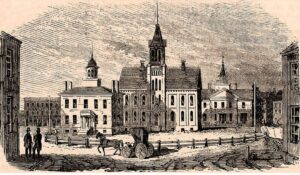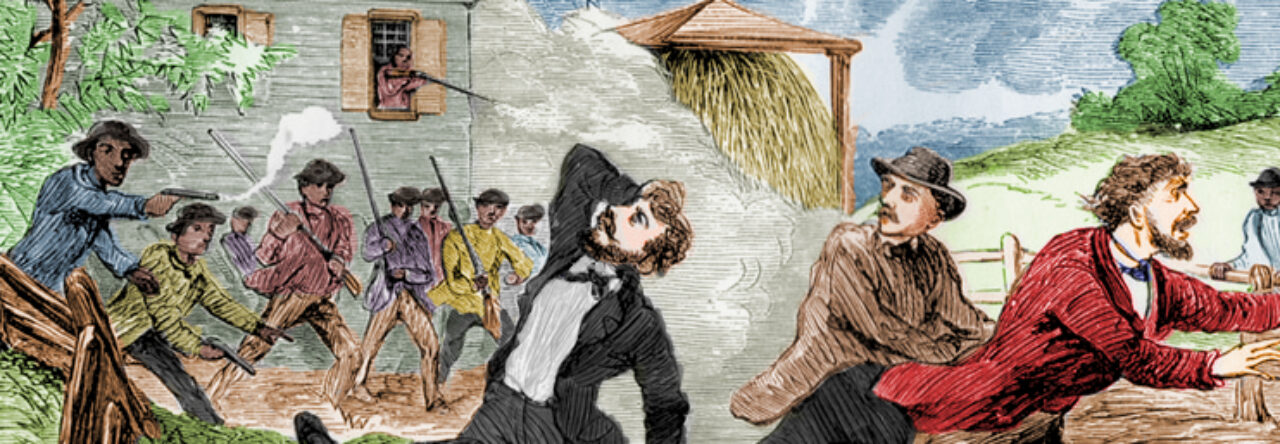Vigilance leaders charge federal officers with assault and battery under Pennsylvania state law, impeding enforcement of the federal 1850 Fugitive Slave Act
Date(s): escaped federal custody September 3, 1853
Location(s): Fauquier County, Virginia; Wilkes Barre, Pennsylvania
Outcome: Freedom
Summary:

Wilkes Barre, Pennsylvania House Divided Project)
Virginia slave catchers had the 1850 Fugitive Slave Act on their side, but knew they still had to tread carefully in Pennsylvania, where antislavery vigilance forces could rally powerful local opposition to fugitive slave renditions. Slave catchers and three US deputy marshals traveled to Wilkes Barre undercover and stayed overnight in the hotel where their target, freedom seeker William Thomas, was working as a waiter. The next morning, the Virginians and federal officers ambushed Thomas in the dining room while he served breakfast. But Thomas grabbed a carving knife and fought back. Local residents and the local sheriff, William Palmer, refused to help officers secure Thomas. After a bloodied Thomas escaped, local residents and vigilance leaders in Philadelphia charged the three US deputy marshals, George Wynkoop, John Jenkins, and John Cresson, with assault and battery under Pennsylvania state law. The three federal officers were in and out of state jail until the charges were finally dismissed in May 1854. But US district court judge John Kane remained worried that if federal officers enforcing the Fugitive Slave Act were “compelled constantly to suffer and combat with annoyances like this,” few would be willing to enforce the controversial legislation in the future.
